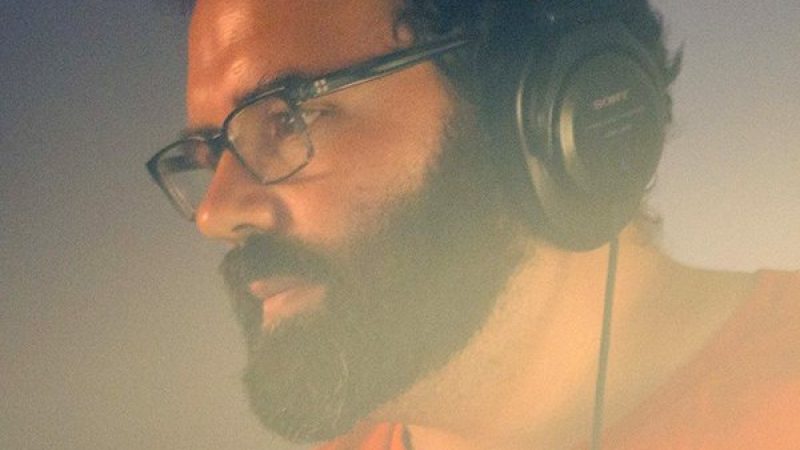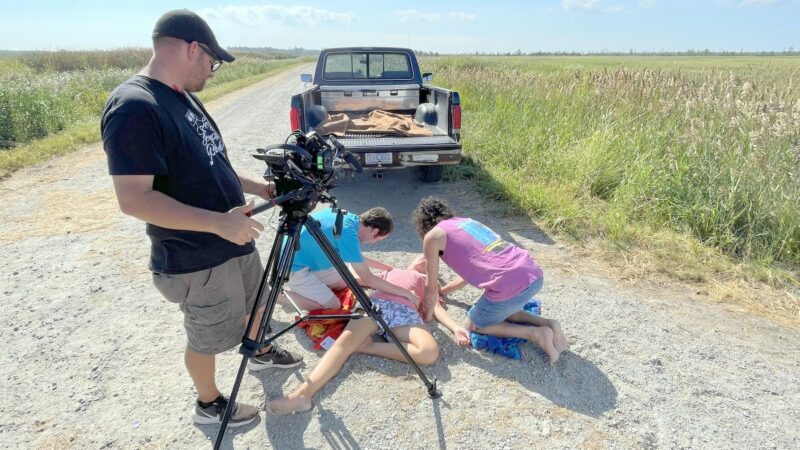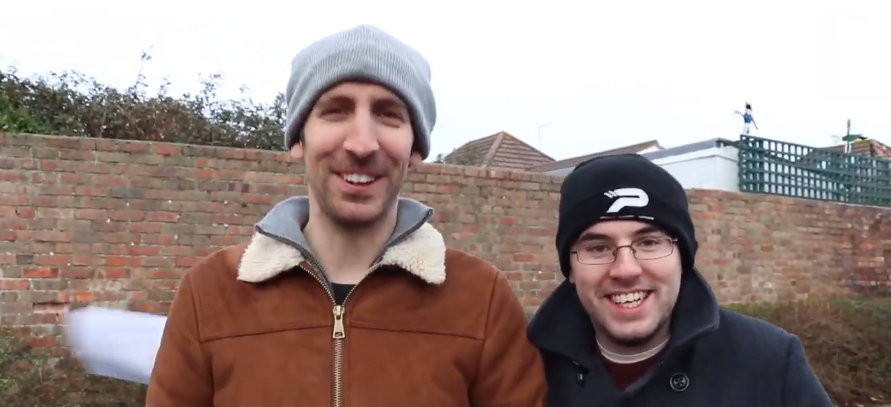
Dan Tonkin has written a dramedy that takes an anthological approach pitting students with mental, social and/or physical issues with an acclaimed historical icon that works as a mentor and together help each other grow as people to fulfil their potential. Dan guides us through his process on creating Jenna The Great, enjoy!
Jenna The Great boats big plans while it has already been through Berlinale, MIPTV & Cannes it was recently entered into ‘Raindance‘ and ‘London Film Festival‘.
The film has been endorsed by the ‘Dorset Mind‘ charity group. It hosts an attractive set of cast and crew; Bhasker Patel, Hattie Gotobed, Luisa Guerreiro, Hollywood music producer and guitarist to ‘the’ George Benson & Barbra Streisand; Michael O’Neill.
indieactivity : Introduction?
Dan Tonkin : I was a nomad since early years, born in the East Midlands, moving from one place to another, raised by a single mother, friends were hard to keep, by the time I fit in one place, I’d be off to the next. My one constant was film. I always wanted to write but education never really helped me steer a clear enough path towards it. In time I would graduate from Met Film School in 2008 where I learned what I needed but still not shown into the ranks or starting platform.
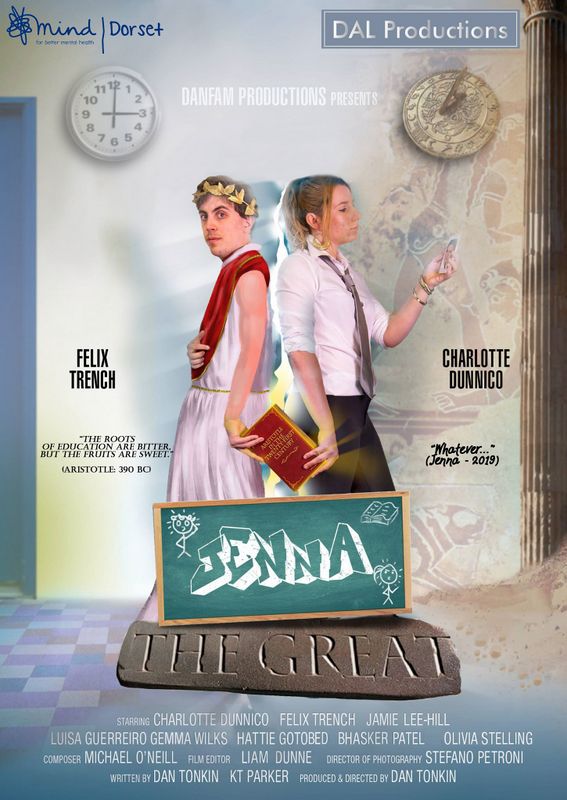
It wasn’t until I tried to live a normal life in doing one bullshit sales job after another I turned back towards education thinking I’d missed something. Despite 4 heavily invested years in University years later, somehow I came out no better, why on Earth was I writing essays about a practical craft? Why were field practitioners the guest’s & the regular teacher’s going through slides in a room? At the NFTS they were getting guests like Roger Deakins & Martin McDonagh, we were getting ‘bloke from around the corner.’
I started to ignore the system and the 3 hours per week so-called full-time course to pursue my own projects and soon found other creative that felt the same and even started mentoring other wannabe filmmakers that were after a more practical experience, whilst the rest fought over grades. Soon, whaddya know…? I get a call from the same University that told me a comedy indie shoot I was both mentoring and DoP on, got nominated at the Royal Television Society. The more I taught, the closer I felt to a script I was writing at the time, which would become Jenna The Great.
indieactivity : How did you develop your short, web series, and or film?
Dan Tonkin : I developed Jenna The Great as a stand-alone film whilst being entranced by my favourite writer; Charlie Brooker’s Black Mirror and thought about the value of my short filmmaking experience, and what I could use from that to give my work more value. I understood that a lot of broadcaster’s were trying to target youth audiences with their material and failing. Was it any surprise?
They typically don’t have these people as part of their teams, their interests shift fast and they don’t spend time with them nor work with them. On the other hand, I was teaching and playing games with them regularly in the UK, Asia & even Latin America. The earthy charm of rebelliousness, sarcasm, finding their voice, resisting peer pressure, developing trust and connections were invaluable shaping my younger characters. Mr. Winston was easy – I just recalled some of the worst teachers I had from my own experiences from school to University and rammed them into one.
One particular guy was so patronising and condescending it drove me mad, especially when he usually had little to no clue what he was doing. Aargh! Aristotle on the other hand, meets Jenna on her own ground and uses the best parts of her personality to encourage her to work, Going forward, I sought a collaboration with a trusted face from the London Screenwriter’s Festival, Big Break winner; Kim Parker or K.T. Parker whom really helped flesh out some of the language and redundant scenes not mention enhancing the material in her own ways herself that really helped us through. Then came Phil Clarke and Elinor Perry Smith to help with the final touches and Jenna The Great was ready but a series idea in my head emerged and then I decided to seek out the funding.
indieactivity : How was it financed?
Dan Tonkin : I had initially assembled a crowd fund campaign, which didn’t go far. Filmmakers only know more filmmakers half the time with the same problem. It’s funny how some find it too hard to even share your social page on it. I had most my lovely cast, myself and even my composer send out their own messages, asking for a bit of help – not much happened. I began searching for financiers – the type that actually put their money where their mouths were.
Not the one’s who just share the odd thing on social media about positive stories or how good they were but actually did something. I found a couple of fantastic people that were dedicated to youth projects and making a difference in their community and had previously helped a filmmaking acquaintance of mine and asked if they would be interested.
It took a few weeks. Our first meetings were online until I got back to the UK. Their names were David & Lynn Coleman, asking where on Earth I came up with the idea and what the scope of my idea was. I flat out told them and a few weeks later my time for teaching had stopped whilst I flew back to the UK to meet them in person. I gave them everything I had, the list of cast, crew, equipment, the latest script, the artwork, even the videos from the crowdfund.
I had obviously convinced them, I had done my homework and they had already seen some of my previous work, having produced what they thought to be a £10,000 short, called Flawless, with our mutual friend Jamie Lee-Hill who has come to win 2 Best Actor Awards from it. When I told them I did that film with closer to £1,000 at that point they knew I could deliver. We shook hands and that was it. Two of the loveliest people I have ever met in my life and couldn’t have done it without their help.
indieactivity : How long was pre-production?
Dan Tonkin : Pre-production was a tad short of 6 weeks, as I recall. It was mostly knitted together due to previous letters of intent with most cast and crew lined up and ready to go even a shot list. I even got an email from a lovely guy called Tim Clague (Who Killed Nelson Nutmeg, Future TX) that was offering to help.
His partner Danny Stack used to be one of my mentors, although unfortunately only briefly. David & Lynn enlisted Digipigz as our PR group to talk through the language and colloquialisms of the script and the look of the artwork then followed up with endorsement from Dorset Mind being as we’re also trying to address mental health issues.
Then my new Assistant Producer Jon Pogioli (also author of BadPaw & The Lightbringer), gave us his house, a rooftop and even reached out to a couple of schools in the Dorset area that were happy to cooperate and we even got permission to have their students included in the shoot so what you see in the film is students for the first time as part of a shoot in their natural environment getting to not only be a part of it but also an education of a real filmmaking experience. Things moved pretty fast.
indieactivity : What was your rehearsal process and period?
Dan Tonkin : There wasn’t much rehearsal as there wasn’t the money or time to do it. It was all about the planning and I had one of my friends; Tom Smith as my 1st AD helping me with tightening up the schedule and assembling the final call sheets. This guy knows how to put films together and is one of the few people that respects the need for planning everything and anything as I do.
He has made a lot of social realist dramas (Smoke, Change etc), which have collected around 3,000,000 views on Youtube and there are small traces of those themes in Jenna The Great. Never underestimate the power of what a great 1st AD can do for you. Simultaneously, I was on location recce with my cinematographer; Stefano Petroni with his one-wheel electric skateboard and a look over his inventory, calling another local cinematographer friend of mine; Dave Kane to fill in the blanks of what we were missing and we were off.
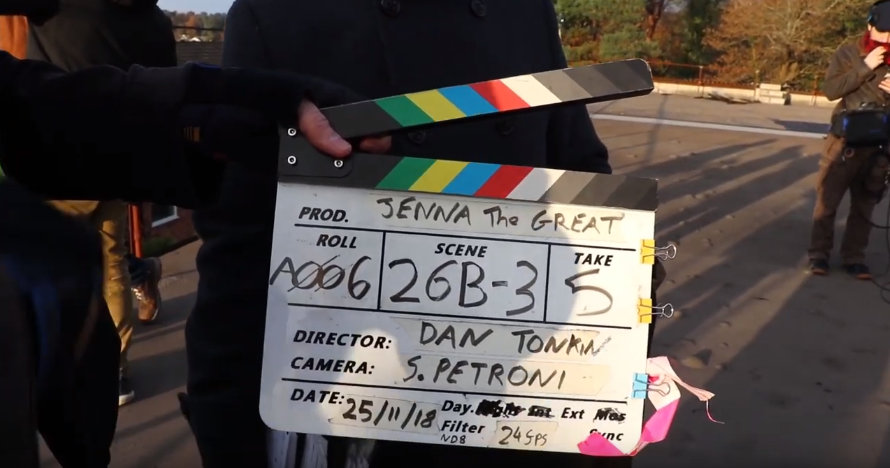
indieactivity : You shot the film in how many days. How long were your days?
Dan Tonkin : We shot Jenna The Great in only 4 days and came back for a 5th to shoot the montage scene a month or so later. They were respectable hours from 8:30 until 5:30 / 6pm-ish. With of course the breaks in between. But make no mistake we shot very quickly. I don’t like faff as much as I like getting on with it.
indieactivity : Did the tight shooting schedule make it harder or easier? How did it affect performance?
Dan Tonkin : The tight shooting schedule, working to achieve many scenes in a short period of time was what made the earlier planning process so vital. Some had never been on a film set like this before but there was a lot of creativity on set.
One of my favourite moments was when we had ran out of time to film the farewell scene between Jenna & Aristotle, which got pushed to the following day where we got hit with golden hour sunset, just as he leaves – so although the tight shooting schedule made most things quite hard, it affected performance quite positively here.
I would have liked more takes in other parts to see what may have happened but things like a dog barking on your rooftop scene during a dialogue heavy moment can be quite hard to retain your love for them – but at least Charlotte Dunnico (playing Jenna) got to invent a new catchphrase for her character’s love of Monster Munch that became a trend on our private chats #Pickle-D-Onion, which kept us in good spirits.
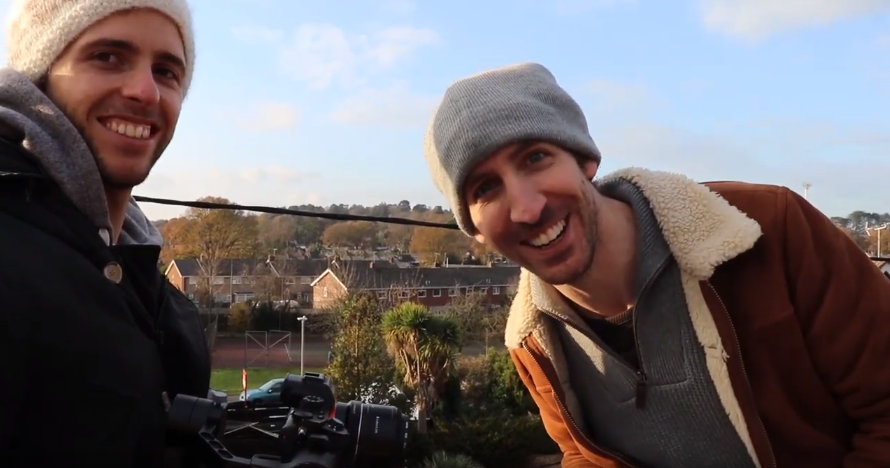
indieactivity : What was the experience like to work with such a small shooting crew?
Dan Tonkin : Filmmakers today are required to be so multi-faceted. On the corporate side they’re expected to leave uni as experienced professionals in writing, producing, directing, camera operation, gaffers, sound recordists, photographers, editors, vfx artists, animators, sound designers, motion capture experienced and fluent in the entire adobe suite not to mention having a couple of years agency experience to their name.
In the film / TV industry, they’re told to only specialise in one thing but already have broadcast credits / experience. This in a word – ridiculous. Film crew’s by nature can be smaller now without any compromise. With someone who has been subjected to the same kind of treatment, they like having their knowledge respected and led by someone patient and approachable. Besides, it’s easier to communicate with less chefs in the kitchen and allows you to move faster, which was incredibly important.
indieactivity : The film looks stunning. How did you get such a good look when shooting so fast?
Dan Tonkin : We are pleased with it, it suffered in post-production because of editor availability at first and the second one was supposed to be an assistant editor in TV but as he was so conditioned into the studio environment, he couldn’t handle the massive workload so I had to jump in. Comedy is the hardest thing to pull off and this is the time you know if you got the right performances or not. In addition to this, if there are any focus issues. On a bigger screen you’re finally in front of the errors of a fast-paced shoot.
Actors having their same hand, head, shoulder or leg movement match the next shot you’re cutting to can be tricky to work around, especially in a genre where things have to be quick and snappy most of the time. But shooting in 4K allows you to crop frames without losing too much data so that’s a nice tool for editing with. Let’s not forget sound. When my loyal friends Marcus Feher in vfx and Page Jones on sound were able to join me again I was so happy. These guys work very hard on my projects. The magic ball you see and the book spark really give the film’s magical surrealist edge and of course what’s that without the score and sound to follow. Page once again worked almost day & night to create the sound that went with these effects, not to mention clearing up all sound, especially those with exterior noise.
Regular communication is needed. Everyone should hear from the director and know what’s going on. The director should always be there to display good leadership – if you say you’re going to do something, value everyone’s input, know what they’re doing, have a bit of tech experience behind them to aid in their instructions, make sure everyone knows who everyone else is, enjoys themselves as much as they can, be comfortable and good work will always follow.
indieactivity : Did you look at dailies? On what format?
Dan Tonkin : On occasion. As you can imagine, shoots being shot with a small crew, no DIT, no logger all comes back to being able trust the people you’re working with… and a REALLY good monitor (a wireless one!) We shot the whole thing on a Sony A7Sii, in 4K so frames could be cropped and the dynamic range high to aid in the grading process. I loved the footage but as you know, scenes had to be cut for certain things like film festival restrictions. Oddly, my Executive Producers like the Director’s cut, whilst I still prefer the short version. I think the music fits better as well as punchier. We also had a DCP version made for our exclusive screening at the Odeon in Bournemouth a few weeks ago. It looked and sounded great.
indieactivity : What were the advantages and disadvantages in the way you worked?
Dan Tonkin : Advantages working the way I did means I get to work with younger people, who’re typically easier and less fussy to work with on set, also keeping the production numbers and equipment light allows you to keep moving at a good pace. Also working the way I did allows me to work with people I trust and others I previously mentored myself, which really helped the message of my film all the more meaningful to me.
The disadvantages being, although I like to just ‘shut up and get on with it,’ it puts pressure on people to get it right first time on tight shoots. Not having the money to give us an extra day also may have taken away some of the extra glamour of shots that we could’ve had but nonetheless, it was one of the most fun shoots of my life.
Follow Dan Tonkin on Social Media
Website
IMDb
Facebook
Twitter
Instagram
YouTube
LinkedIn
In Conversation with Michael Oblowitz Director of Confidential Informant
Confidential Informant stars Mel Gibson, Dominic Purcell, and Kate Bosworth

